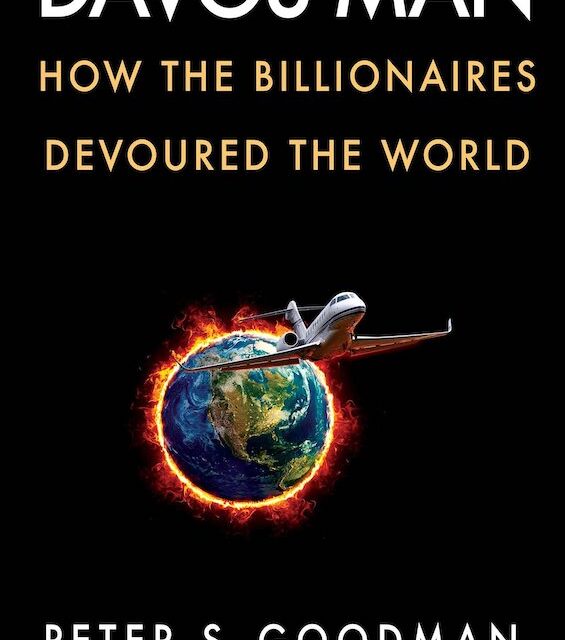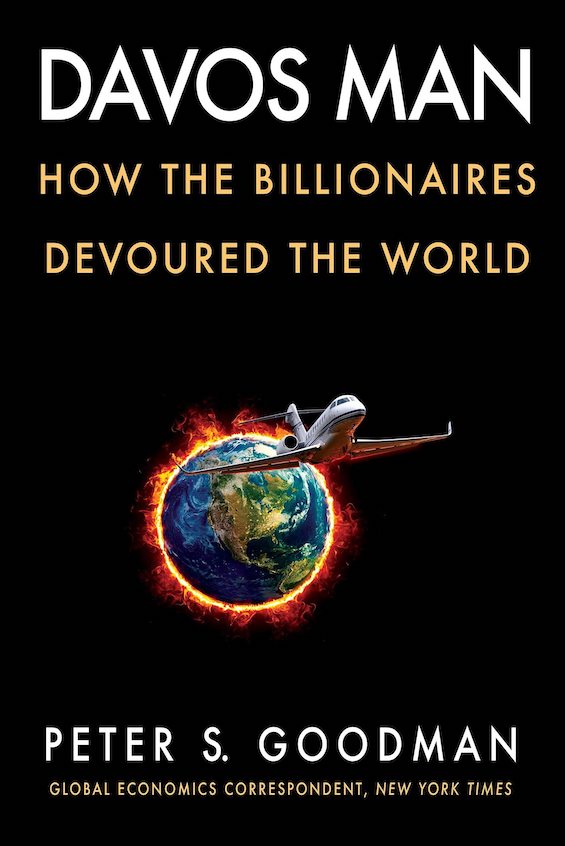
In the prologue to his new book, Peter S. Goodman explains that “the term Davos Man was coined in 2004 by the political scientist Samuel Huntington. He used it to describe those so enriched by globalization, so native to its workings, that they were effectively stateless, their interests and wealth flowing across borders, their estates and yachts sprinkled across continents, their arsenal of lobbyists and accountants straddling jurisdictions, eliminating loyalty to any particular nation.” Sitting in judgment on his subjects, Goodman elaborates on this thesis and updates it for the third decade of the 21st century. He explains the widening economic inequality in today’s world by examining the work of five billionaires.
Estimated reading time: 8 minutes
The lie behind the world’s widening economic inequality
Goodman proceeds to explain that the label as used by the political scientist “referred directly to anyone who regularly made the journey to Davos” to attend the annual World Economic Forum. But, like many others, Goodman uses it “as shorthand for those who occupy the stratosphere of the globe-trotting class, the billionaires—predominantly white and male—who wield unsurpassed influence over the political realm while promoting a notion that has captured decisive force across major economies: when the rules are organized around greater prosperity for those who already enjoy most of it, everyone’s a winner.”
Five men, and five countries, in the spotlight
To illustrate how this tiny, often anonymous group of billionaires has managed to amass such riches while impoverishing untold millions of the rest of us, Goodman develops his narrative around five individual men and explores their impact in five countries. The five men are Internet entrepreneurs Jeff Bezos (Amazon) and Mark Benioff (Salesforce), banker Jamie Dimon (JPMorgan Chase), private equity investor Stephen Schwartzman (Blackstone), and investment manager Larry Fink (BlackRock). The five countries Goodman most closely examines are the United States, the United Kingdom, Italy, France, and Sweden. As he makes clear, the overwhelming majority of people in all five countries have suffered enormously as a result of the business practices of those five men—above all, their unceasing effort to avoid paying taxes.
Davos Man: How the Billionaires Devoured the World by Peter S. Goodman (2022) 286 pages ★★★★☆
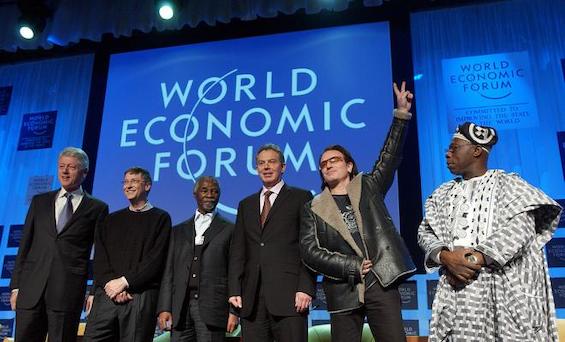
A thesis marred by three flaws
While I concur with almost every charge Goodman hurls at “Davos Man,” it’s hard for me to see how much of what he writes applies as broadly as he suggests. In the final analysis, Davos Man comes across as the story of a vast global conspiracy led by a few thousand billionaires to plunder the planet and consign the rest of us to penury. Some of these men are called “vulture capitalists.” Goodman seems to imply that they all merit the label. To be specific, the book strikes me as flawed in at least three significant ways.
Competing factions
“Davos Man” is a concept rather than a term that applies precisely to a well-defined group or class of people. Throughout the text, Goodman implies that they’re all billionaires, although he wavers on the point from time to time. Others, such as Bill Clinton and Emanuel Macron, who also frequently attend the World Economic Forum, are “Davos collaborators” who help carry out the billionaires’ agenda. But surely this oversimplifies the reality, at best.
The world’s nearly 3,000 billionaires, and the 3,000 people from nearly 110 countries who attend the Davos conference, are in no way a monolithic group. There are competing factions among them. For example, some favor resolute action to combat the climate crisis; others oppose it. Some strenuously denounce the would-be autocrats who have emerged in the West in recent years; others support them. And the attendees, even those who are billionaires, may even fund shooting wars against one another. However, it’s true enough that they seem to agree on one central theme: they all work overtime to avoid paying taxes. In that respect alone, the “Davos Man” concept holds water.
Ideology
Goodman seems to imply that the people who qualify as “Davos Men” act purely out of self-interest which translates easily into greed. But many of these folks actually believe the nonsense they espouse—the approach to economic policymaking Goodman sums up as the “Cosmic Lie.” That’s the proposition that cutting taxes on rich people and corporations will trickle down to the rest of us and be good for society in short order. Of course, four decades of experience in the United States have shown uncontrovertibly that this is ridiculous. Trickle-down economics simply doesn’t work. Despite the abundant evidence that the theory is flat-out wrong, many people believe it. Just because they’re rich doesn’t mean they’re smart. Clever in most cases, yes. But not necessarily capable of parsing economic data without focusing exclusively on what’s in it for them.
Stakeholder capitalism
The author reserves a large measure of his venom for stakeholder capitalism—an approach to corporate management that seeks to share a company’s gains among all its stakeholders. Which means that shareholders are considered merely one of several groups to benefit—contrary to the prevailing mode in business which revolves around shareholder primacy. Goodman rails against the declaration on August 19, 2019, by the Business Roundtable redefining the “purpose of a corporation.” Overturning its 22-year-old policy that held maximizing shareholder return as a company’s highest purpose, they asserted that “companies should serve not only their shareholders, but also deliver value to their customers, invest in employees, deal fairly with suppliers and support the communities in which they operate.” All five billionaires Goodman singles out signed this declaration.
As Goodman points out with undisguised animus, “you could call hotel maids ‘stakeholders’ or ‘highly valued associates’ or whatever you pleased, but when the bottom line was under attack, they became costs to be ruthlessly eliminated.” He goes on to note that “hardly any of the signatories to the Business Roundtable’s statement gained approval from their governing boards for committing to stakeholder capitalism. That fact alone laid bare that the document was really a ploy.” Without question, Goodman’s on solid ground to challenge the hypocrisy of most of the giant corporations that constitute the Global Roundtable. The signatories to the statement include such predatory employers as Amazon and Walmart. For them, a commitment to stakeholder capitalism is a species of greenwashing. But he’s dead wrong to reject stakeholder capitalism as practiced by Salesforce, whose Mark Benioff also signed the declaration—and by many thousands of other, smaller corporations.
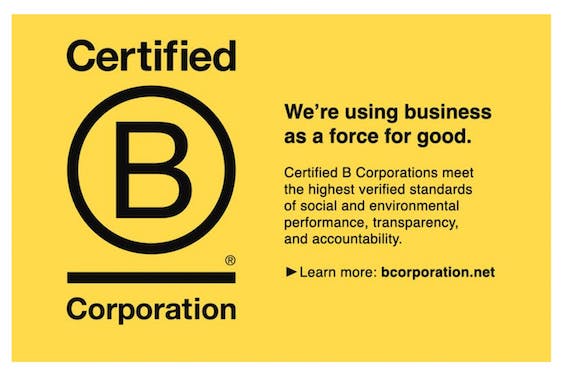
A personal perspective
Stakeholder capitalism represents a huge step beyond the ruthless corporate practices that have driven a wedge between rich and poor in our society and made life more challenging for us all. Goodman describes those practices in gleeful detail in the pages of Davos Man. He is either unaware, or simply chooses to ignore, how companies large and small have rejected shareholder primacy. I’ve been involved in the movement for socially responsible business since 1990 and know a great deal about this subject. To learn how thousands of companies around the world—including my own firm, Mal Warwick Donordigital—are undertaking earnest efforts to implement stakeholder capitalism, check out the growing number of B Corps you can find here. And to see how the principles we’ve elaborated are now becoming embedded in corporate law, take a look at the 21st century innovation called the benefit corporation.
About the author
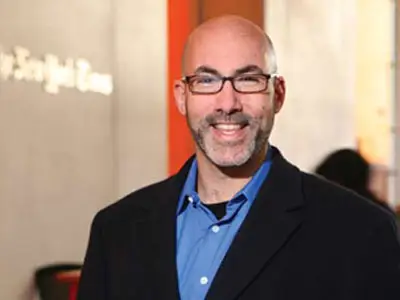
Peter S. Goodman is the European economics correspondent for the New York Times. Previously, he worked for the Washington Post and the Huffington Post and served as editor of the International Business Times. He is a graduate of Reed College. Davos Man is his second book.
For related reading
This is one of the Good books about billionaires.
You might also be interested in these posts about related topics:
- Good books about economic inequality
- 22 good books about finance and economics
- My 10 favorite books about business history
- 12 enlightening books about poverty in America
- Narrowing global inequities: a reading list
- The truth about microfinance: it doesn’t end poverty
And you can always find my most popular reviews, and the most recent ones, on the Home Page.

